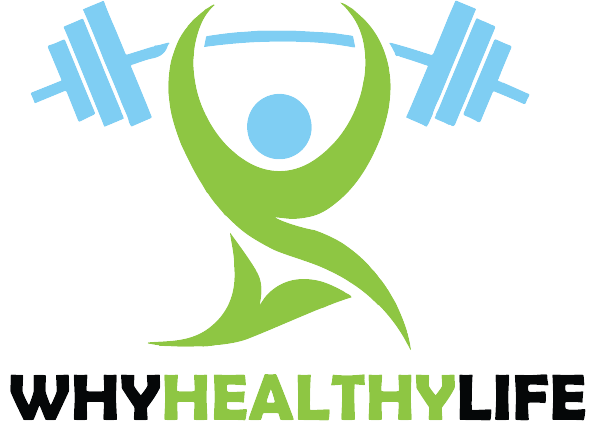When it comes to the health and fitness particularly the aspect that has most influence on the results is nutrition. Whether one is an athlete preparing for a competition or an ordinary person seeking to get fit it is very important to know how nutrition affects performance. This article will focus on some of the essential dietary advice vital in supplementing your fitness regimen to improve your health and adiposity.
Understanding Macronutrients
To optimize your fitness performance, it’s crucial to understand the three main macronutrients: Such as carbohydrates, proteins and fats. Both have different responsibilities of providing energy source to your body and aiding in the repairing and recovery of muscles.
- Carbohydrates: Carbohydrates are commonly described as the body’s favourite fuel and are particularly important during intense sessions. It is stored in the muscles and liver into glycogen which is used during exercises.. It is important to find opportunity to incorporate complex carbohydrates in foods such whole grains, fruits and vegetables. These foods give long-enduring energy, and are also considered to be high in vitamins and minerals.
- Proteins: Protein is essential in tissue repair as well as muscle development. Especially, consuming protein is vital for muscles after huge loads have been put on them during exercises. Choose foods low in fat and high in protein, like poultry, fish, vegetables, and other legumes. Individuals ought to intake 1.2 to 2.0 gm per kg of body weight of foods rich in protein in accordance with the activity level in the day.
- Fats: Healthy fats are generally not understood well, yet they are vital for a healthy body and can be a good concentrated source of energy. Consume vegetable oils such as olive oil, allocate a portion of your diet to nuts and seeds, and occasionally take avocados. Fats also help in the digestion of fat-soluble vitamins (VIT-A, D, E & K) and help in the synthesis of hormones.
Hydration and Its Importance
Water is a very important ingredient when it comes to achieving one’s fitness goals. These are fatigue, problems in body coordination, and there is a decreased ability to think coherently. Here are some hydration tips:
- Drink Water Regularly: Try to take at least 8-10 cups of water a day, and more depending on your level of physical activity and environmental conditions. Such as for the purpose of the hardcore workouts or exercising in high temperatures, the body may require more.
- Monitor Urine Color: This is especially important because urine color can be used to help you determine your level of hydration. The color green means drink more; light yellow means good, while dark yellow means you should drink more fluids.
- Electrolyte Balance: If going for a very long or energetically demanding session, then substituting lost electrolytes through sweat might be necessary. Sports drinks or even other electrolyte-replenishing foods such as bananas and coconut water should do the trick.
Pre-Workout Nutrition
Consumption of certain types of foods before exercising can dramatically affect your workout. Here are some tips for pre-workout nutrition:
- Timing is Key: Ideally, one’s meal should be taken about 2-3 hours before exercising. This meal should contain carbohydrates, proteins, and fats, the healthy fats. If time is an issue, a small snack 30-60 minutes before your workout will be enough.
- Ideal Foods: For example, those options can be oatmeal with pieces of fruit, a glass of green smoothie and protein shake, and a whole-grain sandwich with lean protein. These are foods that help one’s body get the energy it needs without adding extra pounds to the body.
- Avoid Heavy Meals: Avoid power foods that are high in fats and oil building up to a work out session as it may cause uneasiness or dullness of body movement.
Post-Workout Nutrition
Recovery is definitely as equal a part of training and exercising as the exercise itself, and the right food after a training session can improve recovery and muscle hypertrophy. Here are some guidelines:
- Replenish Glycogen Stores: Carbohydrate should be taken after exercise in order to refill the exhausted glycogen stores in the body. Ideally, try to consume within the 30 to 60 minutes of completion of your exercise regimen.
- Include Protein: Carbohydrates should be combined with protein so as to aid in the repair of the muscle tissue. A common recommendation is a 3:1 part carbohydrate to one part protein. For example, a protein shake together with a banana or a turkey sandwich made from whole-grain bread.
- Hydrate: Remember to take a break and hydrate your self if you were exercising. A glass of water or an electrolyte containing solution can replenish the fluids lost during a bout of vomiting.
Supplements: Do They Help?
People make use of supplements in order to improve their fitness performance. While some supplements can be beneficial, it’s essential to approach them with caution:
- Consult a Professional: As a rule, no dietary supplement should be taken without consulting a doctor or a nutritionist. They can define if one requires any elemental deficiencies or if one needs supplements in the diet.
- Common Supplements: Protein powders, creatine, and branched-chain amino acids (BCAAs) are some of the most common supplements favored by bodybuilders. Although they can be helpful in recovery and performance, they should not be substituted for whole foods.
- Focus on Whole Foods First: It is also important to understand that a well-rounded diet consisting of whole foods is preferable to taking supplements. Whole foods are healthier than supplements because they contain a package of nutrients that supplements do not contain.
Meal Planning for Fitness
Making a meal plan can in fact make nutrition manageable and make sure that you are feeding your body properly. Here are some tips for meal planning:
- Plan Ahead: Take some time at least once a week to get yourself organized with your meal planning. This can assist you in meeting your goal since you do not have to be making unhealthy decisions at the last minute.
- Batch Cooking: Cook large portions of greens and carry them, or prepare different snacks to be taken in the course of the week. This can help save time and make sure that you will always have the healthiest choices close at hand.
- Include Variety: Make sure you have all kinds of foods to make sure your body is supplied with all the nutrients it needs. Don’t stick to eating the same type of food every day; try to add different fruits, vegetables, grain products, and proteins into your diet.
Conclusion
It is imperative that sustenance is well understood for optimum fitness operation. Here is what you need to know about macronutrient functions, water intake, and pre- and post-workout diets to improve muscle performance and recovery. Always think about fresh ingredients and always seek advice from experts about supplements. So, if you take your nutrition right, you are on the right track to attaining your fitness goals and improved health.
Related posts
Subscribe
* You will receive the latest news and updates on your favorite celebrities!
Quick Cook!
Navigating Food Labels: Understanding Nutritional Information
Reflexology: Tackling What We Know and What We Could Learn About Its Health Benefits
[instagram-feed feed=1]



